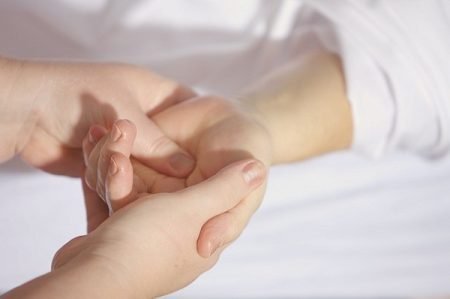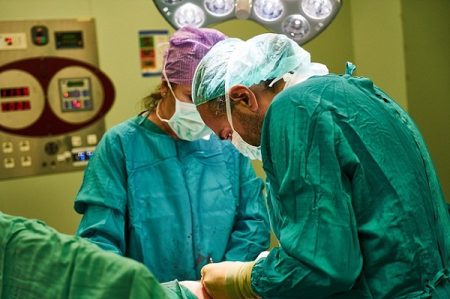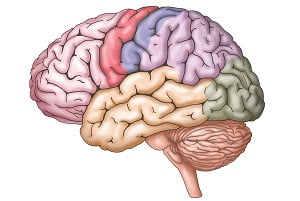Carpal Tunnel Surgery Aftercare: Driving After Carpal Tunnel Surgery
- Updated on: Jun 11, 2024
- 3 min Read
- Published on Sep 26, 2019


What can you do for post carpal tunnel surgery care?
After carpel tunnel surgery, your doctor will give a detailed set of instructions to follow for healing of wound and speedy recovery after the surgery. These instructions are listed and discussed briefly here.
Daily activity after carpel tunnel surgery
- Take proper rest. Having enough sleep will help you recover fast. You may notice some level of numbness after carpal tunnel surgery (numbness after carpal tunnel release surgery).
- Avoid lifting things heavier than 0.5 to 1 kilogram for up to 2 weeks after the surgery, and using your hand for straining activities such as washing windows, vacuuming, or chopping food, doing repeated arm or hand movements, such as typing or using a computer mouse. You should avoid activities that may involve vibration.
- Try to walk every day. Start with smaller distances and increase it every day gradually.
- You may begin heavier tasks about 4 weeks after the surgery. These may include vacuuming, mowing the lawn, and gardening.
- You may shower 24 to 48 hours after the surgery, if your doctor permits it. While taking shower, keep your bandage dry by taping a sheet of plastic to cover it. If you have a splint, keep it dry. If your doctor allows removing it, be careful not to put the splint back on too tight. However, you should avoid taking a bath until the incision heals or until your doctor okays it.
More: Carpal Tunnel Pain: What Relieves Carpal Tunnel Pain?
More: Carpel Tunnel Syndrome (CTS): Causes, Symptoms, Diagnosis, Treatment
Diet after carpal tunnel operation
- You can have a normal diet after the carpal tunnel surgery. If you find your stomach to be upset, take low-fat foods like toast, yogurt, plain rice and broiled chicken.
Medicines after carpal tunnel surgery
- Take your medicines as directed by your doctor. Intimate your healthcare provider if you are allergic to any medicine. Consult your doctor if you think prescribed medicine is not working as expected.
- Always take your antibiotics exactly as ordered by your doctor. Do not stop taking them without consulting your doctor. You should not take leftover antibiotics that were given to you for another illness.
- You may need medicine to manage post carpal tunnel surgery pain. Ask your doctor about them, how often to take them and their dosages. Do not wait for pain to get severe before you take medicine. Consult your doctor if your pain does not decrease.
- Sometime pain medicine can make you feel sleepy, call someone when you get out of bed or if you need help.
Incision and splint care
- If your doctor has recommended you to use a splint, talk to her/him about when you should wear it.
- Try to keep you bandage dry as far as possible. If it gets dirty, you may change it. Learn the procedure to change it from your doctor or the nurse who attended you.
Physical therapy and exercise after carpal tunnel surgery
Your doctor may refer you to a physical therapist to teach you special exercises for wrist and hand rehabilitation. These exercises help in decreasing the pain and improving the movement of your hand. It also decreases the risk of function loss.
There is a series of exercises you do after your surgery. This helps you in gaining back your wrist’s and hand’s strength, grip range of motion. These exercises are particularly helpful in wrist pain after carpal tunnel surgery and thumb pain after carpal tunnel surgery.
To get maximum benefit from these exercises, you should follow the instruction of your physiotherapist and doctor correctly. Read more about post-carpal tunnel surgery exercises.
Use of Ice and Elevation of bodily location
- Apply a cold pack of ice on your wrist for 10 to 20 minutes at a time. Repeat this for the next three days after every 1 to 2 hours or until the swelling resolve. A piece of thin cloth can be placed between the ice and your skin.
- Keep your sore wrist on a pillow when you ice it or when you lie down or sit for the next 3 days. You should keep it above the level of your heart. You should avoid your hand letting down as it can worsen the swelling condition.
Driving after carpal tunnel surgery: How soon can I drive after the surgery?
For 1 to 2 week after the carpal tunnel surgery, you will not be able to drive at all. Because for the first few weeks after surgery you might experience some level of sensitivity or pain, which can affect your ability to safely drive a car.
You should wait until your wound has healed to prevent your stitches from loosening and your wound opening. This usually takes 10-14 days. Majority of people are able to begin gentle driving approximately two weeks after their carpal tunnel surgery.
However, your readiness to return to driving is dependent on your individual condition and case. You should consult and talk to your doctor regarding professional assessment prior to driving and to avoid any disappointment.












